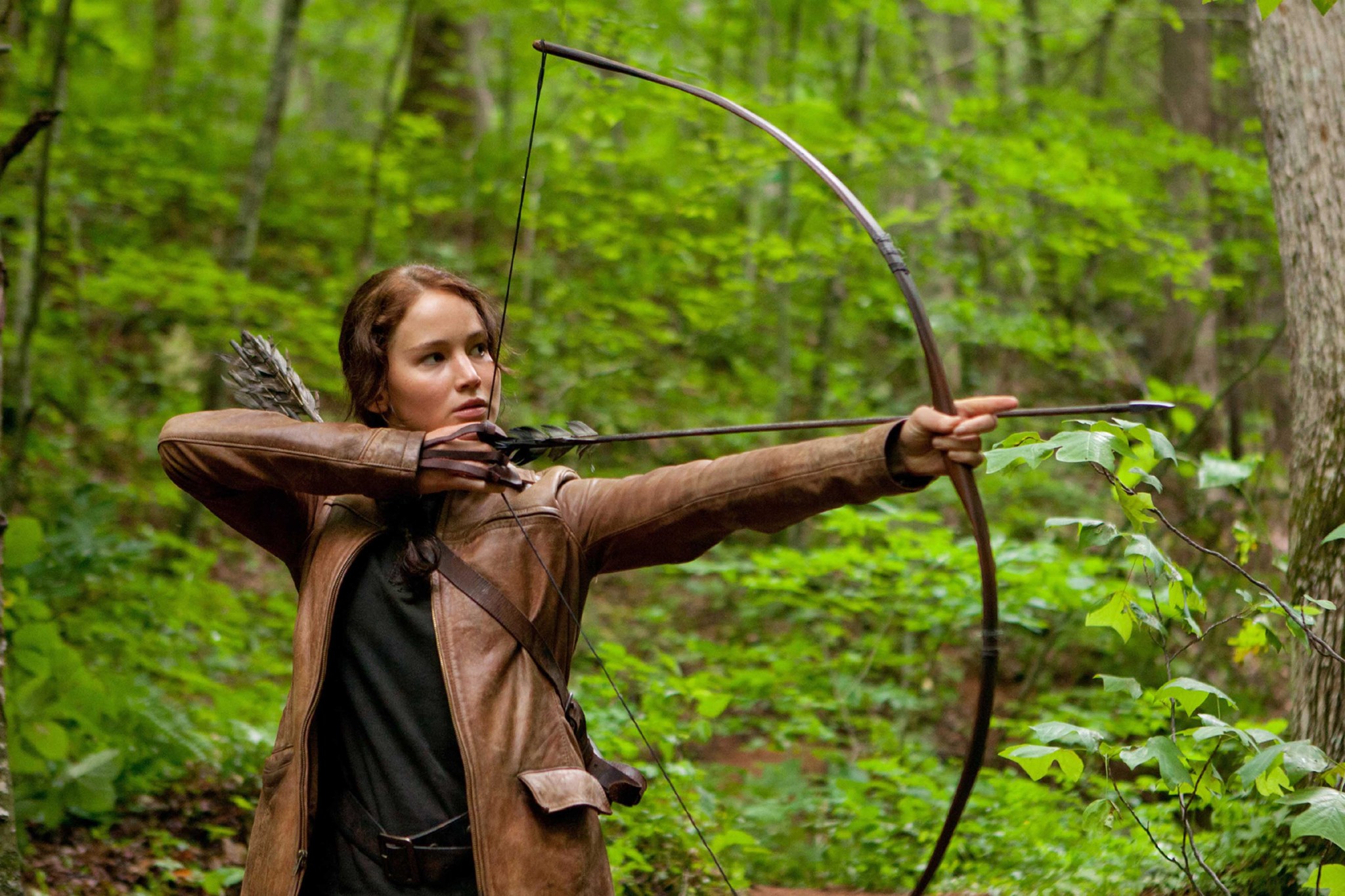The sweet smell of farts
 Lionsgate
Lionsgate
(I'm no archery expert, but she'd probably have more success if she held her bow perpendicular to her arm and centred the arrow on the bowstring. Fortunately, it's only pretending.)
Actresses Jennifer Lawrence and Viola Davis got together for a spot of good old mutual fawning—as luvvies are wont to do—hosted by Variety. For her part, Lawrence explained that she doesn't enjoy press interviews, saying: I’m always very self-conscious of my intellect because I didn’t finish school. I dropped out of middle school.
But she'd already made that perfectly clear, earlier in the conversation.
I want to circle back to you being “The Woman King.” I remember when I was doing “Hunger Games,” nobody had ever put a woman in the lead of an action movie because it wouldn’t work — because we were told girls and boys can both identify with a male lead, but boys cannot identify with a female lead. And it just makes me so happy every single time I see a movie come out that just blows through every one of those beliefs, and proves that it is just a lie to keep certain people out of the movies. To keep certain people in the same positions that they’ve always been in.
Jennifer Lawrence, Variety
Needless to say, her claim to be the firstest woman action hero EVAHSIES has met with a good deal of derision, and a number of female-led titles predating 2012's The Hunger Games have been cited to check her conceit. Many of those actresses—by no means limited to Sigourney Weaver, Alien (1979); Angelina Jolie, Lara Croft: Tomb Raider (2001); Milla Jovovich, Resident Evil (2002); and Kate Beckinsale, Underworld (2003)—support the case that women fronted popular action films prior to the rise of JLaw, and some of them went on to build successful action franchises.

But other examples that've been cited really don't hold water.
The point here is that two criteria must be satisfied. The lead character, the primary protagonist and hero
, must be female. In addition, the film must've been commercially successful; otherwise, the inference is that—quality issues aside—boys
couldn't identify with the female lead.
Although Linda Hamilton was a pretend badass in Terminator 2: Judgement Day (1991), most people went to the picture playhouse to see Arnie, who was the real lead. Similarly, Bruce Willis, not Milla Jovovich, was the lead in The Fifth Element (1997). Brigitte Nielsen was the main protagonist in Red Sonja (1985), but it was a critical and commercial failure. While Carrie Fisher's Leia and Carrie-Anne Moss' Trinity were not the lead characters in Star Wars (1977) and The Matrix (1999).
So, overall, there are some good examples that lay bare JLaw's hubris in claiming to be the trailblazing action-woman of the silver screen. Others, not so.
Either way, I wouldn't be at all surprised if she smells her own farts.
In her defence, it's possible that Lawrence was specifically reflecting on YA action films—hence her reference to girls and boys. Possible, yes. But that's not what she said. So, yeah. (shrug)
JLaw attempted to clarify her comments to The Hollywood Reporter:
Speaking with The Hollywood Reporter on Thursday, Lawrence said, “That’s certainly not what I meant to say at all. I know that I am not the only woman who has ever led an action film. What I meant to emphasize was how good it feels. And I meant that with Viola — to blow past these old myths that you hear about … about the chatter that you would hear around that kind of thing. But it was my blunder and it came out wrong. I had nerves talking to a living legend.”
Hilton Dresden, Jennifer Lawrence Clarifies Remark About Female-Led Action Movies: “It Came Out Wrong”, The Hollywood Reporter
I'm not so sure that this clarifies her comment about being the first woman action hero evahsies!, or emphasises the one about not having completed school. Because, although I can read between the lines, it doesn't make a hell of a lot of sense at face value.